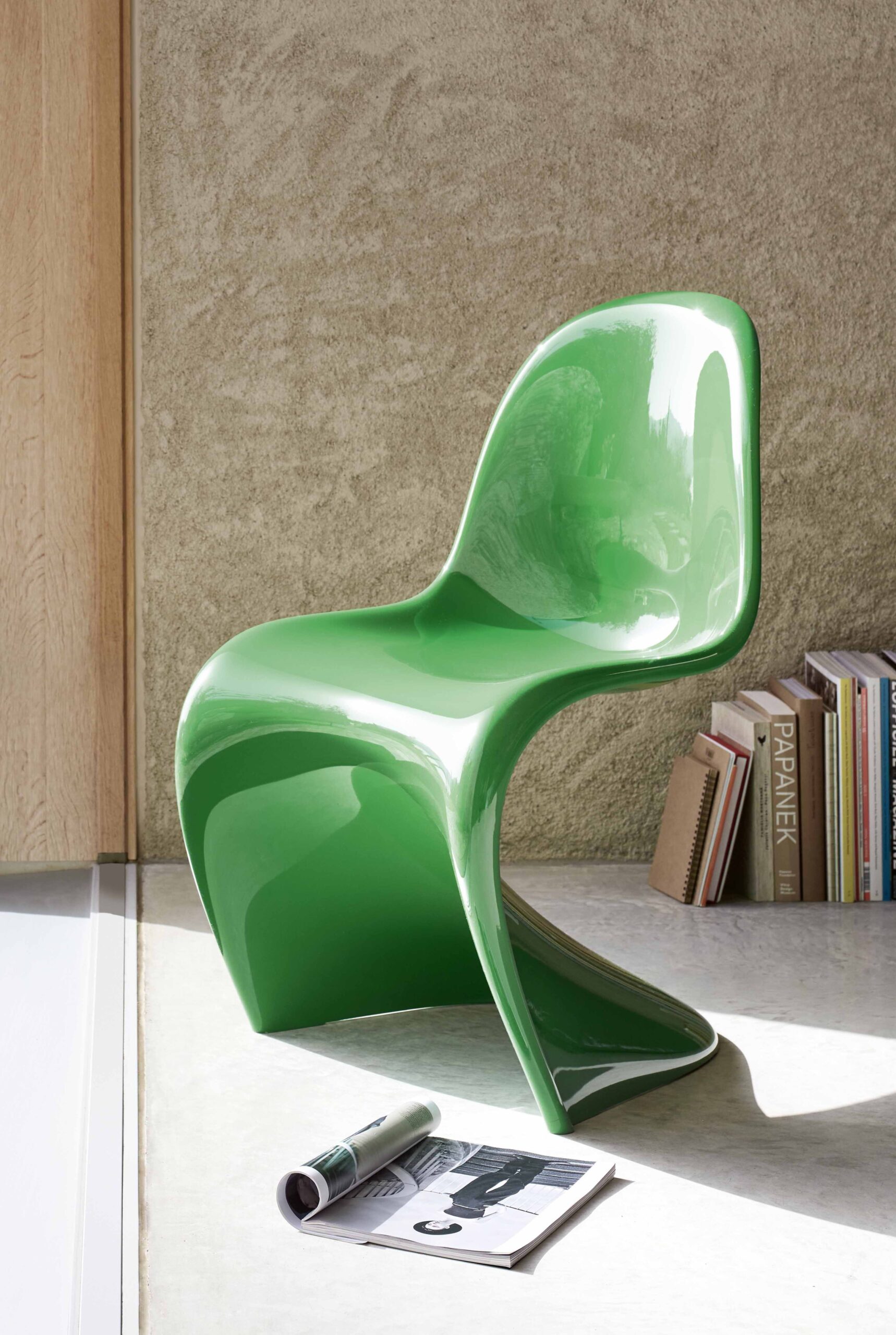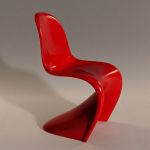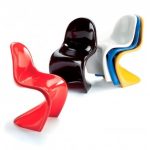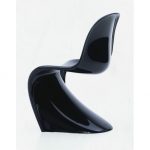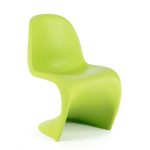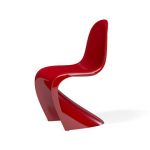The Panton Chair is perhaps one of the most fascinating and exotic furniture designs of the 20th century. The chair was designed by Verner Panton, the legendary Danish modernist and an icon of furniture and interior design, and is further proof that Denmark should be declared the world capital of chair design. Despite its considerable age, this timeless piece of furniture still looks extravagant and fascinating, making it a great, tasteful addition to any modern interior.
history
The design of the chair was created by Verner Panton, a graduate of the Royal Danish Academy of Art, whose innovative approach and use of new, innovative materials revolutionized the world of interior design. His great passion for bright colors and geometric patterns manifested itself in his outstanding work, which includes a large number of classics of furniture design. Panton was particularly fascinated by the potential of plastic, a material that was new at the time. In the mid-1950s, Panton began work on a one-piece chair made entirely from plastic. His new wish was particularly well illustrated by Panton himself, who said: “I want to design furniture that grows out of the ground (..) in order to transform the furniture into something organic. Which never has four legs. “His first design was called the S-Chair and is considered to be the forerunner of the Panton Chair, the first plaster-molded prototypes of which were developed in the early 1960s. In 1963, Panton began working with the furniture company Vitra, with whom he continued to improve the design.
The finished chair first stepped into the spotlight in 1967 and was enthusiastically received by the public and critics. Soon after its presentation, the chair, which was hailed as a design sensation, was brought into mass production. This furniture design classic had immediate commercial success and is still available under the same brand.
design
The innovative futuristic design of the chair in combination with the innovative use of materials has given the chair a very special place in the history of interior design. The unique shape of the Panton Chair has been praised by critics from all over the world and is extremely appealing and stylish. No wonder, because it is one of the exhibits in the Museum of Modern Arts in New York, Berlin’s German Historical Museum, Copenhagen’s Danish Museum of Art and Design and London’s Design Museum. Although the chair looks like a masterpiece of modern art, it is fully functional and very comfortable. Its shell is shaped to match the curves of a human body.
The waterfall seat edge that reduces pressure on the back of the user’s thighs. The distinctive S-shaped chair was originally made of rigid polyurethane foam with a glossy finish, as the plastic dyeing process was not developed during this time. This version of the chair is still available in stores under the name Panton Chair Classic. Since the chair was introduced in 1967, numerous production improvements have been made and new, more durable materials have been used. In 1999 Vitra presented the Panton Chair again, which was manufactured according to its original concept – made of colored plastic with a glossy matt surface. This variant of the chair is sold under the name Panton Chair. Both chairs are available in a variety of bright colors.
The seamless shape of the chair without joints or binders makes it very robust and stable. The chair is extrusion molded in one piece. Thanks to its well thought out arm shape, the chair is stackable and therefore easier to stow away. The overall appearance of the chair is extremely appealing and fascinating. Even today, more than five decades after its presentation, when modernity is no longer an extravagant or radical concept, the Panton Chair has neither aged nor become banal. It still looks fresh and contemporary.
 decorafit.com Design ideas for your home and patio
decorafit.com Design ideas for your home and patio
